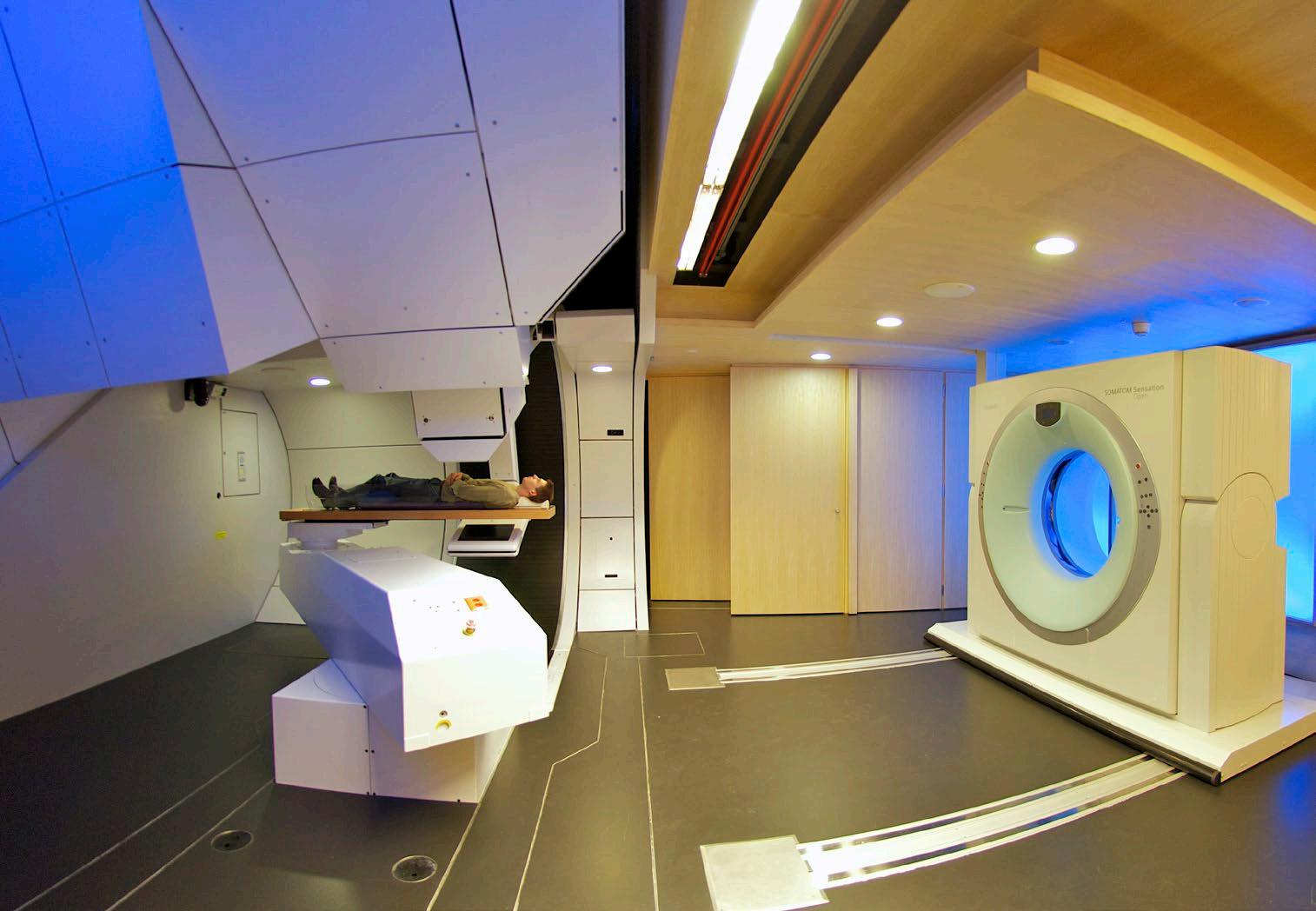New diagnostic and therapeutic methods are central to medical research and development at PSI. In cancer diagnosis, the focus is on early detection.
Fundamental research using the latest methods leads to the development of innovative therapies. Here PSI works very closely with universities, hospitals, and the pharmaceutical industry.
PSI in brief
With 2300 employees and an annual budget of 460 million Swiss francs, PSI is the largest research institute for natural and engineering sciences in Switzerland. It is the central location of Switzerland’s large research facilities. As part of the ETH Domain, PSI is a key pillar in the Swiss research landscape and conducts cutting-edge research in the fields of Future Technologies, Energy and Climate, Health Innovation and Fundamentals of Nature.
By collaborating with industry, PSI strengthens the innovative power of Switzerland as a business location. Additionally, through the founding of spin-offs, PSI transfers its latest scientific findings directly into the economy. PSI is already investing today in the experts of tomorrow: around a quarter of PSI employees are postdoctoral researchers, PhD students or trainees.
Targeting tumours
At PSI’s proton therapy facility, patients have received treatment for tumour diseases since 1984. The facility, developed by PSI experts and built on the Institute’s premises, is unique in the world. Irradiation technology employed here exploits the advantages of protons, making it possible to target and destroy the tumour while optimally protecting the healthy tissue surrounding it.
In consultation with the Center for Proton Therapy, doctors can refer patients for treatment at PSI.
In addition, radioactive agents for early detection of the smallest tumours are developed and studied at PSI. These rapidly decaying radioactive drugs are produced in the inhouse pharmaceutical laboratory for direct diagnostic use in hospitals. Radiopharmaceuticals from PSI are also used in cancer treatment.
Very small tumours in particular, which spread throughout the body, cannot be treated with conventional radiation therapy. To treat such tumours, PSI combines special biomolecules with a radioactive atom to form therapy molecules. These can seek out and destroy tumour cells selectively and in a targeted manner.
1 At PSI, small batches of highly specific drugs are produced – so-called radiopharmaceuticals. These are then delivered directly to hospitals, where they are used to treat tumour patients. 2 For several decades, PSI has been providing proton therapy to fight tumours. In a so-called gantry, a radiation head under computer control moves around patients to focus the beam precisely. 3 With the aid of artificial intelligence, PSI researchers are developing new methods to detect cancer at an early stage or to monitor the progress of treatment. To do this, they create something like a cellular passport photo and search through huge image databases for conspicuous changes.

In cancer, early detection is essential. The earlier therapy begins, the greater the chance of a cure. At PSI, researchers are developing new diagnostic methods aimed at discovering tumours at an earlier stage than ever before. These include technical methods such as phase-contrast X-ray imaging for early detection of breast cancer as well as the selective use of blood cells for diagnosis. For this the researchers at PSI are using artificial intelligence, among other things, to seek out conspicuous cells in blood samples.
Imaging at PSI
Artificial intelligence
Profiling / detection of anomalies
AI for human health




